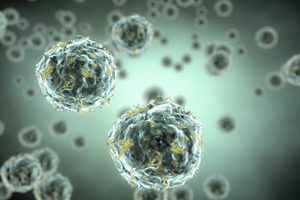The War on Germs: Are We Winning? Should we be?
 Homicide: bad word. It means killing another human being. Germicide? For many, good word. It promises to kill what are hated and feared most in this super-sanitary era: germs.
Homicide: bad word. It means killing another human being. Germicide? For many, good word. It promises to kill what are hated and feared most in this super-sanitary era: germs.
Germ is sort of a catchall that refers to any microorganism we can’t actually see. That’s sort of like referring to every non-human living thing as an animal: elephants, mosquitoes, salmon, vultures.
Fact is, there are only a few bad actors in the world of microorganisms, and we pretty much know who they are. Take streptococcus mutans. It’s a bacteria linked with tooth decay. But wait! That’s only one strain of bacteria that live in the mouth, many of which are helpful. Saliva alone contains roughly a trillion bacteria.
Humans couldn’t continue to exist without the good germs. They’re crucial to healthy digestion. They break down the food we eat into the nutrients our bodies need. They’re essential to the making of cheese, the brewing of beer, the baking of bread.
They’re also exceedingly resilient. Not that long ago, antibiotics were prescribed routinely for just about anything out of the ordinary. But bacteria can mutate—shape-shift if you will—and today physicians are encountering strains that are virtually antibiotic-resistant, especially in patients who have received more than their share of antibiotic doses over time. So now the consensus is to administer antibiotics only sparingly, or as needed.
“Pro-“ and “Pre-Biotics”
Among the friendly bacteria we like to have around is l. acidophilus, found in yogurt, also known as a probiotic. But there’s also a prebiotic, the kind of food ingredient that nurtures probiotics. They’re fibers and sugars we don’t actually digest but feed the bacteria in our intestines, which stimulates their helpful activity.
They occur naturally in many foods: oatmeal, barley, onions, bananas, leeks, artichokes. Researchers have noted that some prebiotics may reduce inflammation associated with some bowel diseases, help alleviate constipation, improve cholesterol levels and inhibit development of colon cancer.
Germs! They can do a body good!
Today we have antibacterial hand soap, disinfecting kitchen wipes, antimicrobial pencil sharpeners, penicillin. However, just as it is here in the larger world, declaring Total War on everything in sight is not always the wisest response. Eliminating all the good germs along with the bad would render our earth a sterile, lifeless planet.
Eliminating all the good germs along with the bad would render our earth a sterile, lifeless planet.
![]()
About Yuri Kaneda, DDS
Dr. Yuri Kaneda was born in Japan and immigrated to the US when she was 4 years old with her family. She lived in Ohio, Nebraska, and Illinois before finally settling in the San Diego area. A graduate of Bonita Vista High School, she went on to the University of California Berkeley where she obtained her Bachelors in Microbiology and Immunology. After working for 2 years in growth plate research at University of California San Diego, she went to the University of California San Francisco Dental School for her Doctor of Dental Surgery degree. Upon graduation, she returned to San Diego where she worked as an associate in the practice of Drs. Morimoto and Yaryan, her childhood dentist. She then started her own practice in 1995 and has been at her present location since 1999 which happens to be across the street from her high school!
View all posts by Yuri Kaneda, DDS →
Appointments
To schedule an appointment please email us at [email protected].

